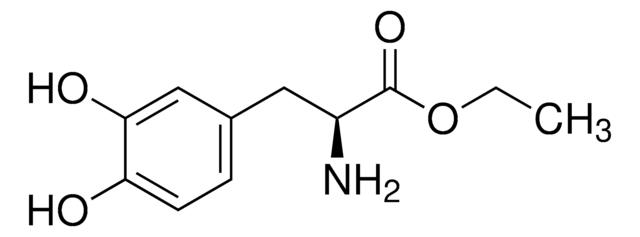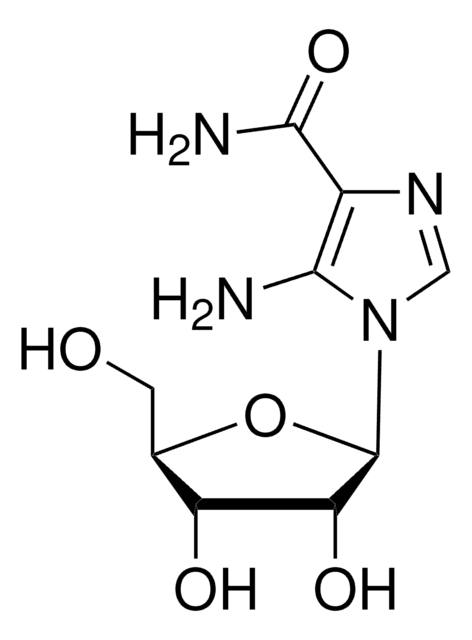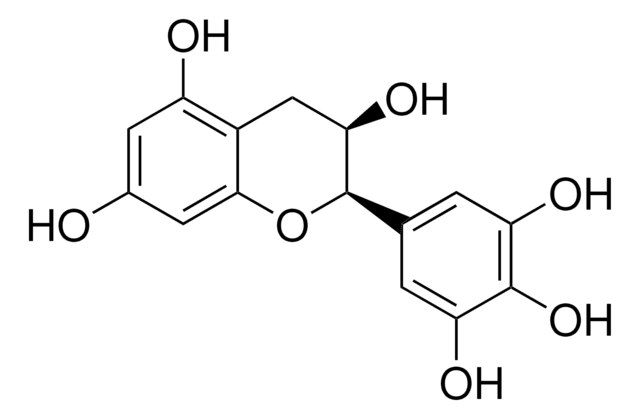H2380
6-Hydroxy-DL-DOPA
≥98% (HPLC), powder, APE1 inhibitor
Synonym(s):
2,4,5-Trihydroxy-DL-phenylalanine, 2,5-Dihydroxy-DL-tyrosine
About This Item
product name
6-Hydroxy-DL-DOPA, ≥98% (HPLC), powder
Assay
≥98% (HPLC)
form
powder
color
off-white
solubility
H2O: 3 mg/mL
1 M HCl: 50 mg/mL (Solutions should be freshly prepared and protected from exposure to light.)
storage temp.
−20°C
SMILES string
NC(Cc1cc(O)c(O)cc1O)C(O)=O
InChI
1S/C9H11NO5/c10-5(9(14)15)1-4-2-7(12)8(13)3-6(4)11/h2-3,5,11-13H,1,10H2,(H,14,15)
InChI key
YLKRUSPZOTYMAT-UHFFFAOYSA-N
Looking for similar products? Visit Product Comparison Guide
General description
Biochem/physiol Actions
Packaging
Caution
Storage Class Code
11 - Combustible Solids
WGK
WGK 3
Flash Point(F)
Not applicable
Flash Point(C)
Not applicable
Personal Protective Equipment
Certificates of Analysis (COA)
Search for Certificates of Analysis (COA) by entering the products Lot/Batch Number. Lot and Batch Numbers can be found on a product’s label following the words ‘Lot’ or ‘Batch’.
Already Own This Product?
Find documentation for the products that you have recently purchased in the Document Library.
Customers Also Viewed
Our team of scientists has experience in all areas of research including Life Science, Material Science, Chemical Synthesis, Chromatography, Analytical and many others.
Contact Technical Service




